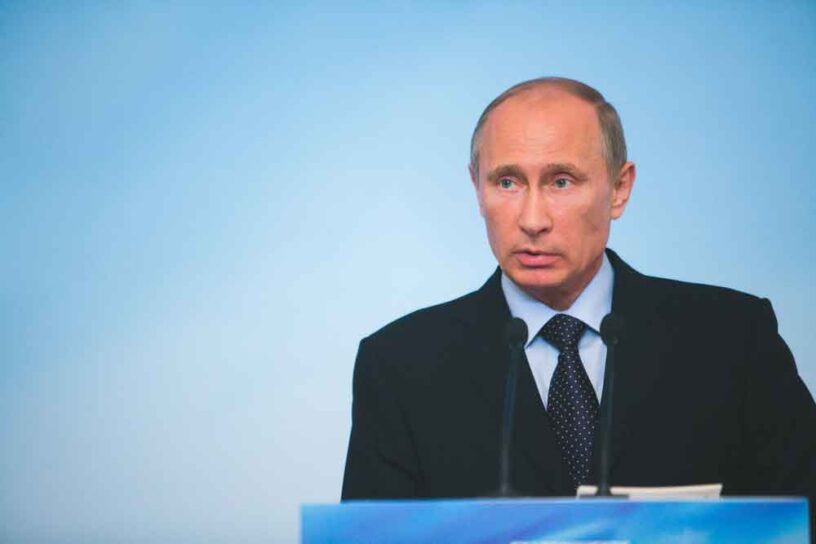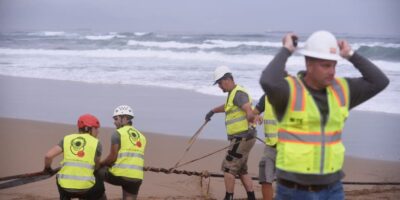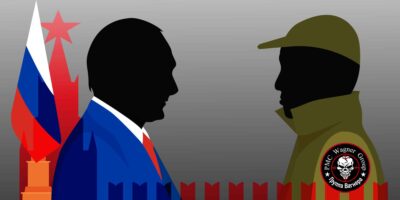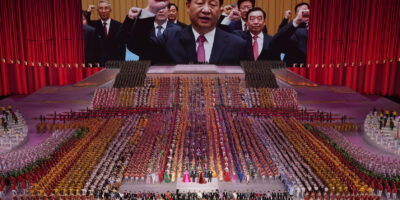Putin’s Munich speech was given by Russian president Vladimir Putin in Germany on 10 February 2007 at the Munich Security Conference.
1. He first states that NATO and the EU cannot be a substitute for the UN:
(From the full transcript.)
I am convinced that the only mechanism that can make decisions about using military force as a last resort is the Charter of the United Nations. And in connection with this, either I did not understand what our colleague, the Italian Defence Minister, just said or what he said was inexact. In any case, I understood that the use of force can only be legitimate when the decision is taken by NATO, the EU, or the UN. If he really does think so, then we have different points of view. Or I didn’t hear correctly. The use of force can only be considered legitimate if the decision is sanctioned by the UN. And we do not need to substitute NATO or the EU for the UN. When the UN will truly unite the forces of the international community and can really react to events in various countries, when we will leave behind this disdain for international law, then the situation will be able to change. Otherwise the situation will simply result in a dead end, and the number of serious mistakes will be multiplied. Along with this, it is necessary to make sure that international law have a universal character both in the conception and application of its norms.
2. Next, Putin openly and specifically questions the expansion of NATO:
(From the full transcript.)
The Adapted Treaty on Conventional Armed Forces in Europe was signed in 1999. It took into account a new geopolitical reality, namely the elimination of the Warsaw bloc. Seven years have passed and only four states have ratified this document, including the Russian Federation.
NATO countries openly declared that they will not ratify this treaty, including the provisions on flank restrictions (on deploying a certain number of armed forces in the flank zones), until Russia removed its military bases from Georgia and Moldova. Our army is leaving Georgia, even according to an accelerated schedule. We resolved the problems we had with our Georgian colleagues, as everybody knows. There are still 1,500 servicemen in Moldova that are carrying out peacekeeping operations and protecting warehouses with ammunition left over from Soviet times. We constantly discuss this issue with Mr Solana and he knows our position. We are ready to further work in this direction.
But what is happening at the same time? Simultaneously the so-called flexible frontline American bases with up to five thousand men in each. It turns out that NATO has put its frontline forces on our borders, and we continue to strictly fulfil the treaty obligations and do not react to these actions at all.
I think it is obvious that NATO expansion does not have any relation with the modernisation of the Alliance itself or with ensuring security in Europe. On the contrary, it represents a serious provocation that reduces the level of mutual trust. And we have the right to ask: against whom is this expansion intended? And what happened to the assurances our western partners made after the dissolution of the Warsaw Pact? Where are those declarations today? No one even remembers them. But I will allow myself to remind this audience what was said. I would like to quote the speech of NATO General Secretary Mr Woerner in Brussels on 17 May 1990. He said at the time that: “the fact that we are ready not to place a NATO army outside of German territory gives the Soviet Union a firm security guarantee”. Where are these guarantees?
3. Putin is then questioned about his NATO stance by Munich Security Conference attendee.
(From the full transcript.)
QUESTION: Dear Mr President, thank you for your speech. I would like to emphasise that the German Bundestag is convinced of Russia’s importance as Europe’s partner and of the importance of the role you play. The Federal Chancellor said this in her speech.
Proceeding from experience, I would like to mention two issues in your speech. First of all, on your opinion of NATO and NATO expansion, a phenomenon that you consider dangerous for Russia. Would you acknowledge that this phenomenon is, in practice, not expansion but rather the self-determination of democratic states who want this? And that NATO finds it difficult to accept states that do not declare this readiness? You could admit that thanks to NATO expansion eastern borders have become more reliable, more secure. Why are you afraid of democracy? I am convinced that only democratic states can become members of NATO. This stabilises neighbours.
4. Finally, Putin responds to the above questions.
(From the full transcript.)
Regarding our perception of NATO’s eastern expansion, I already mentioned the guarantees that were made and that are not being observed today. Do you happen to think that this is normal practice in international affairs? But all right, forget it. Forget these guarantees. With respect to democracy and NATO expansion. NATO is not a universal organisation, as opposed to the UN. It is first and foremost a military and political alliance, military and political! Well, ensuring one’s own security is the right of any sovereign state. We are not arguing against this. Of course we are not objecting to this. But why is it necessary to put military infrastructure on our borders during this expansion? Can someone answer this question? Unless the expansion of military infrastructure is connected with fighting against today’s global threats? Let’s put it this way, what is the most important of these threats for us today – the most important for Russia, for the USA and for Europe – it is terrorism and the fight against it.
Does one need Russia to fight against terrorism? Of course! Does one need India to fight against terrorism! Of course! But we are not members of NATO and other countries aren’t either. But we can only work on this issue effectively by joining our forces. As such, expanding infrastructure, especially military infrastructure, to our borders is not connected in any way with the democratic choices of individual states. And I would ask that we not mix these two concepts.








